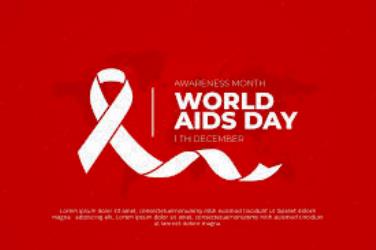The Country Director of UNAIDS Nigeria, Dr. Leopold Zekeng, has called for community support to end the Acquired Immunodeficiency Syndrome (AIDS) epidemic by 2030, which is part of the UN Sustainable Development Goals (SDGs).
He made the call in a statement issued in Abuja on Thursday, ahead of the 2023 World AIDS Day (WAD), annually marked on Dec. 1 to raise awareness about the AIDS pandemic, caused by the spread of HIV infection.
WAD is a global observance and an opportunity for people worldwide to unite and show support to people living with HIV, commemorate those who died from AIDS-related illnesses, as well as advocate increased efforts to prevent new infections.
The theme of the global celebration is “Let Communities Lead”, domesticated in Nigeria as “Communities Leadership to End AIDS by 2030.”
AIDS is a chronic, potentially life-threatening condition caused by the Human Immunodeficiency Virus (HIV), which damages the immune system and interferes with the body’s ability to fight infections.
Zekeng said the theme reflected the country’s recognition of the significant role of communities’ leadership in driving the goals and targets for ending HIV/AIDS by 2030.
He described communities as“people living with, at risk of, or affected by HIV, leading the frontline of progress in the HIV response.
“Communities play significant roles, particularly in hard-to-reach areas where access to modern healthcare services is limited.
“They also play important roles where the barriers of inequalities and experiences of stigma and discrimination constrain the uptake of HIV, tuberculosis, and related health services.”
He cited the Global Fund’s statistics which show that community organisations in Nigeria reached more than one million people with HIV interventions in 2022.
The community organisations provided support in counselling services in 2020 distributed over 5.5 million condoms and supported thousands of people living with the virus.
The country director commended the contributions of the Network of People Living with HIV/AIDS in Nigeria (NEPWHAN), the Association of Women Living with HIV/AIDS in Nigeria (ASWHAN), Association of Positive Youths (APYIN), among others, in the HIV response.
He said “It is also good to mention the initiative of the Community “iMonitor +” app for HIV /AIDS communities.
“It is a novel digital approach toward improving community engagement and empowerment of PLWH in Nigeria.
“The app provides a platform for communities to report abuses and rights violations, information on service centers, and surveys to track activities.
“The community of PLHIV in the country demonstrated evidently that they are not only beneficiaries of services but are contributing and driving the lead in the HIV/AIDS response in Nigeria.”
He, however, added that dwindling resources, capacity constraints, and intermittent infringement on human rights, as well as structural barriers in Nigeria, are barriers affecting communities’ efforts in the HIV response.
He suggested that “communities will lead, but need our support to overcome the challenges.
“Engaging and empowering diverse communities requires deliberate efforts in building strong relationships, continuous learning, adapting to changing circumstances, and celebrating incremental achievements.”
He, therefore, reiterated the commitment of UNAIDS and other partners to support the government to end the AIDS epidemic by 2030.


